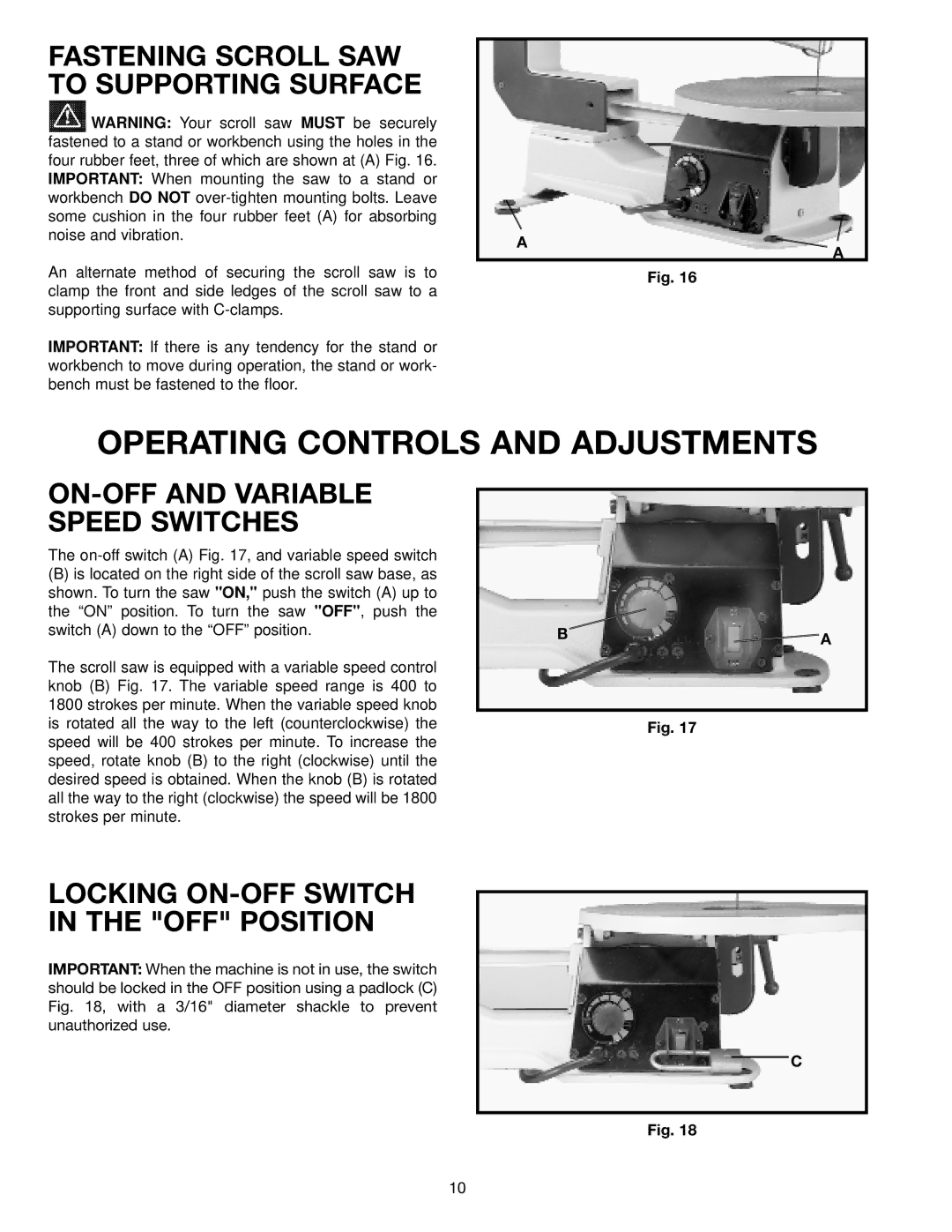
FASTENING SCROLL SAW |
| |
TO SUPPORTING SURFACE |
| |
WARNING: Your scroll saw MUST be securely |
| |
fastened to a stand or workbench using the holes in the |
| |
four rubber feet, three of which are shown at (A) Fig. 16. |
| |
IMPORTANT: When mounting the saw to a stand or |
| |
workbench DO NOT |
| |
some cushion in the four rubber feet (A) for absorbing |
| |
noise and vibration. | A | |
| ||
| A | |
An alternate method of securing the scroll saw is to | Fig. 16 | |
clamp the front and side ledges of the scroll saw to a | ||
| ||
supporting surface with |
|
IMPORTANT: If there is any tendency for the stand or workbench to move during operation, the stand or work- bench must be fastened to the floor.
OPERATING CONTROLS AND ADJUSTMENTS
ON-OFF AND VARIABLE SPEED SWITCHES
The
(B)is located on the right side of the scroll saw base, as shown. To turn the saw "ON," push the switch (A) up to the “ON” position. To turn the saw "OFF", push the switch (A) down to the “OFF” position.
The scroll saw is equipped with a variable speed control knob (B) Fig. 17. The variable speed range is 400 to 1800 strokes per minute. When the variable speed knob is rotated all the way to the left (counterclockwise) the speed will be 400 strokes per minute. To increase the speed, rotate knob (B) to the right (clockwise) until the desired speed is obtained. When the knob (B) is rotated all the way to the right (clockwise) the speed will be 1800 strokes per minute.
B![]() A
A
Fig. 17
LOCKING ON-OFF SWITCH
IN THE "OFF" POSITION
IMPORTANT: When the machine is not in use, the switch should be locked in the OFF position using a padlock (C) Fig. 18, with a 3/16" diameter shackle to prevent unauthorized use.
C
Fig. 18
10
